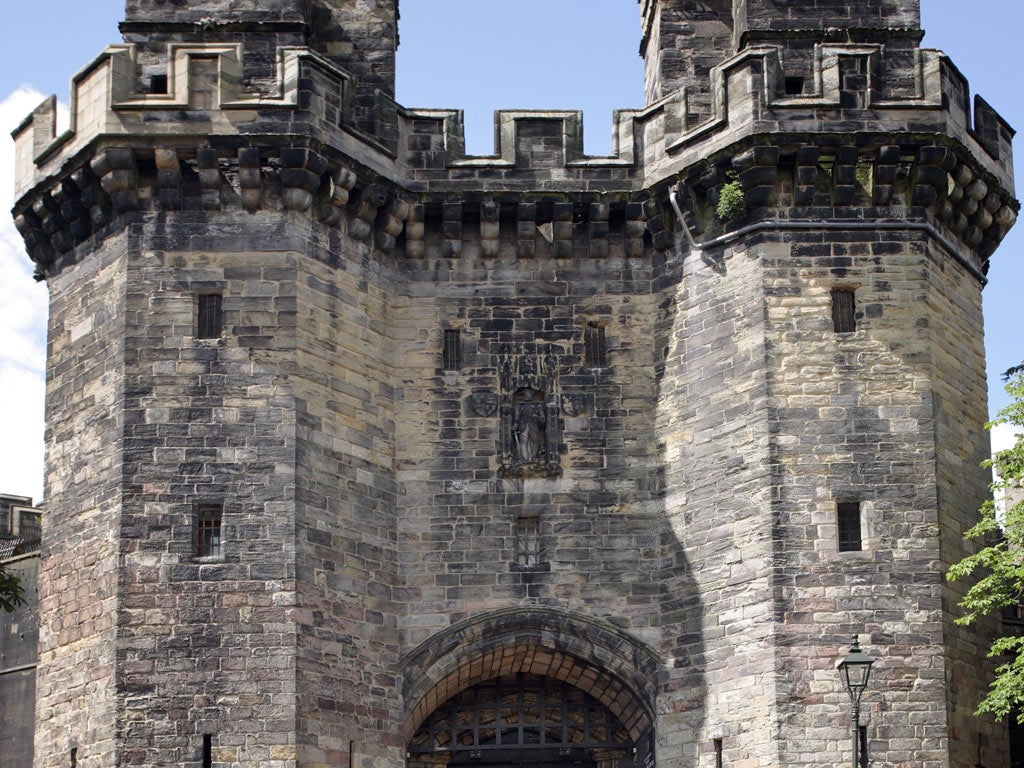Cuts put prisons at serious risk of riots, say officers
Too many prisoners and too few staff spell danger

The threat of riots in Britain's jails is mounting rapidly due to a shortage of staff on duty, budget cuts and the closure of facilities, prison officers have warned.
Click here to see the 'Most crowded jails' graphic
The Prison Officers Association has written to ministers to say it fears the safety both of officers and inmates is being put at risk as the population behind bars reaches unsustainable levels.
The number being held in jails in England and Wales has increased by almost 4,000 in the past year to 87,393 this week – the highest ever total at Christmas. This is just 2,084 short of the usable operational capacity. The figure is expected to continue to rise next year, potentially requiring some prisoners to be held in police cells.
The surge – partly fuelled by convictions following the summer riots – comes as the Ministry of Justice faces a spending squeeze of 28 per cent over the next three years. Four jails have been shut by Kenneth Clarke, the Justice Secretary, as the previous Government's prison-building plans have been put on hold.
An analysis of the latest Prison Service figures reveals that two-thirds of prisons are now so crowded that they cannot provide a "decent" standard of accommodation. Several of the country's largest jails, including Brixton, Wandsworth and Preston, are running at 50 per cent above their "certified normal accommodation".
More than 80 are above the baseline figure – meaning most prisoners have to double up in cells designed for only one inmate – with just 46 running at normal capacity. At the same time, many prisons are operating without a full complement of staff. In total last month there were 1,805 vacancies for staff across the prison system.
In a letter to the Prisons minister Crispin Blunt, the Association's national chairman said he believed it was only a matter of time before the Government has to resort to holding prisoners in police cells. "The Government policies of prison closures, budget cuts and competition are unsustainable and we fear could potentially risk the health and safety of prison staff and indeed prisoners," said Peter McParlin.
He called for three mothballed prisons to be reopened. "The POA believes that brave decisions need to be made to ensure safety within our prison estate," he wrote.
Glyn Travis, a spokesman for prison officers, said: "If they continue with the cuts then we fear the riots we saw in late 2010 on New Year's Eve will be nothing compared with what we will see.
"The cuts have led to redeployment of staff in prisons up and down the country. We are coming to a very volatile moment. We believe there's a serious risk of rioting because of the curtailment in staff numbers.
"We've got crisis points at certain establishments because of shortfalls."
The concern of prison officers is reflected in Whitehall, where ministers issued orders to governors and companies running private prisons earlier this month to refresh their contingency plans for "significant incidents".
The plans include moving prison officers between sites to reinforce staff at a prison facing a serious disturbance. The Christmas period often raises concerns about discipline because staffing is at lower levels than usual and inmates can become unruly at being confined over the festive season.
Last New Year's Day, scores of inmates rioted at Ford open prison in West Sussex. The ministry said "national command arrangements" were in place to deal with any significant incidents over the Christmas period.
Mr Blunt said: "Governors of public prisons and directors of private prisons were requested to ensure that contingency plans were reviewed ahead of public holidays. These include the mobilisation of resources in response to incidents at other establishments."
But Sadiq Khan, the shadow Justice Secretary, said last night: "Cancelling prison building plans, closing down prisons and doubling up prisoners means their chance of rehabilitation is almost zero, while the likelihood of problems is increased."
Juliet Lyon, the director of the Prison Reform Trust, agreed that the prison population was "neither justifiable nor sustainable". She said: "The number of prisoners has gone up so far in excess of the number of staff that the very best the Prison Service can do is run a 'holding system'. They have got to get the numbers down – you can't just cram people into cells."
Lord McNally, a Justice minister, told the House of Lords earlier this month that the prison system was "doomed" without reforms to cut reoffending rates.
He said: "Unless we attack the rehabilitation of offenders, we will be doomed to be spending increasingly more on punishment." In opposition, the Conservatives had pledged to create 5,000 new prison places.
A Prison Service spokesperson said: "We have seen a significant rise in the prison population since the summer. Managing the increase in the population is challenging, but we have been continually developing contingencies. As part of our contingency planning we continue closely to monitor the estate for any potential unrest."